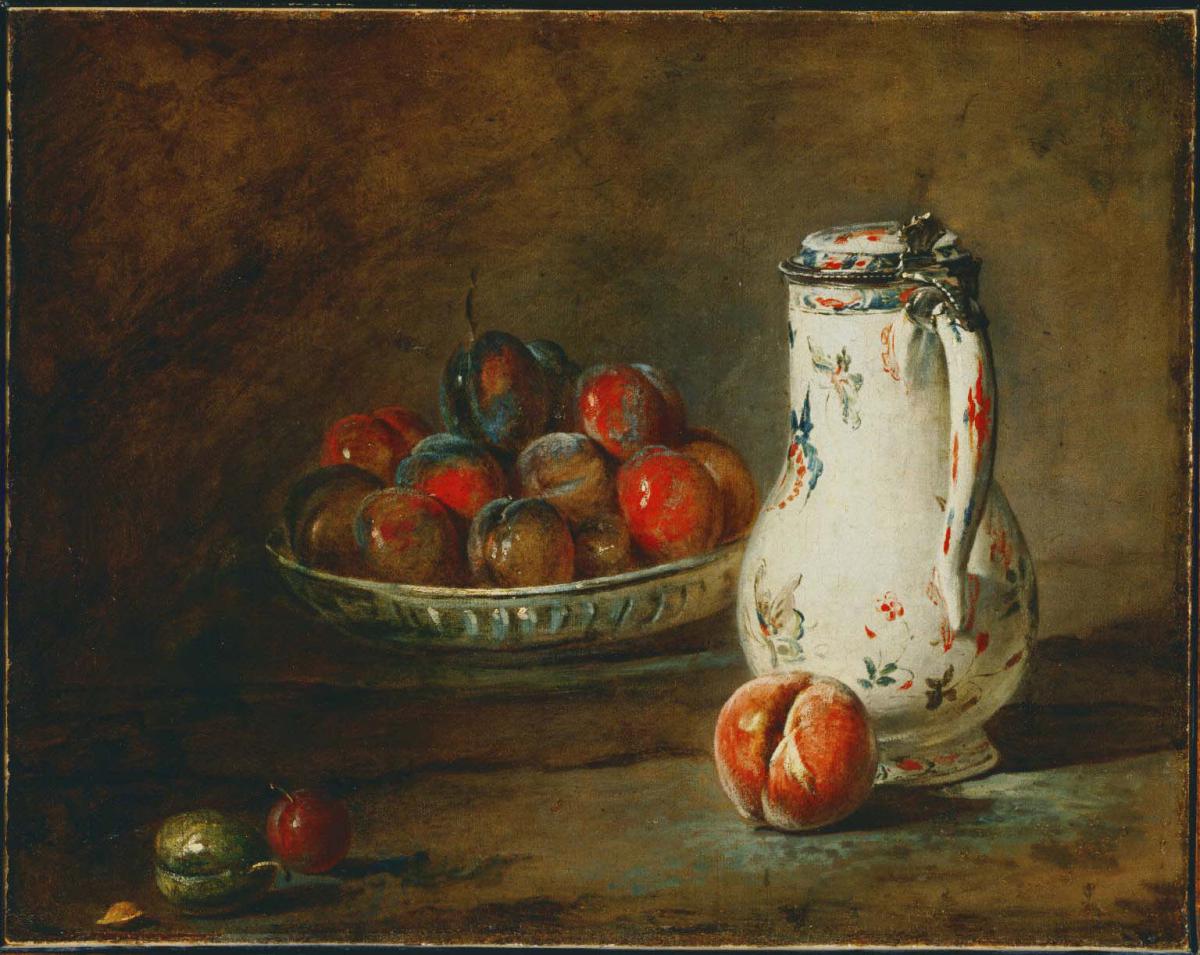A Bowl of Plums
Jean-Baptiste Simeon Chardin ( c. 1728 )

Duncan Phillips ranked Jean-Baptiste Simeon Chardin’s A Bowl of Plums among his outstanding oil paintings, calling it “personal and poetic in spite of its apparent objectivity.” When Phillips published an announcement in 1930 advertising the Phillips Memorial Gallery as “A Museum of Modern Art and its Sources,” he illustrated it with A Bowl of Plums, thereby establishing his view of Chardin as a precursor of modernism in art. To Phillips, he was one of the first painters to communicate personal expression in his images and to perceive his subjects as compositions of pure color, light, and design, anticipating the vision of the impressionists and Cézanne. A Bowl of Plums was frequently displayed in the museum with paintings by modern artists of similar creative temperament. Phillips considered Chardin “the classic French builder in an architecture of aerial space,” believing that his structured compositions and subtle, painterly use of color had more in common with the art of Cézanne, Braque, and Derain than that of artists like Bonnard, who in Phillips’s opinion was a subjective, “whimsical fantasist,” more prone to “seize the fugitive image” than to intellectualize his scenes.